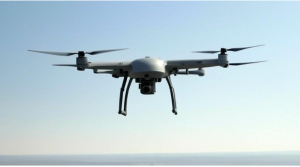Nigerian Army Confirms Boko Haram Uses Armed Drones Similar to Israeli, Ukrainian Types in Borno

The Nigerian Army has raised the alarm over a sophisticated escalation in Boko Haram’s tactics, confirming the terrorist group’s deployment of armed drones in Borno State, resembling those used in high-tech conflicts in Israel and Ukraine.
This development, described as a “growing threat,” marks a significant shift in the insurgency’s capabilities, posing new challenges for Nigeria’s counterterrorism efforts.
During a press briefing in Maiduguri, Major General Abdulsalam Abubakar, Theatre Commander of Operation Hadin Kai, revealed that Boko Haram has been using weaponized drones since November 2024.
“These drones are hard to detect with conventional radar systems,” Abubakar stated, highlighting their similarity to advanced models deployed in international conflicts. “This is a game-changer in the North East, and we are adapting to counter it.”
The drones, capable of carrying out precise strikes, have been used in coordinated attacks on military positions, including recent assaults in Rann, Dikwa, and Gajiram.
This is a game-changer in the North East, and we are adapting to counter it
While the military repelled most of these attacks, the breach in Rann resulted in the loss of four personnel, underscoring the drones’ lethal potential. Abubakar noted that the insurgents’ adoption of such technology mirrors tactics seen in modern warfare, raising questions about their funding and supply chains.
“How are they getting these sophisticated weapons? Who is supplying them?” asked @Izomo_on X, echoing widespread public concern.
We’ve been re-strategizing over the past two months
The Nigerian Army has responded by restructuring its operations, with Abubakar, who assumed command three weeks ago, overseeing strategic changes. “We’ve been re-strategizing over the past two months,” he said, citing the induction of new platforms and personnel to bolster defenses. The Chief of Army Staff’s recent visit to Borno further signaled a high-level commitment to addressing the evolving threat.

Abubakar also pointed to the role of illicit arms flowing from the Sahel region, where overrun military barracks in neighboring countries have fueled the black market. A recent interception of 13,000 liters of smuggled fuel, enough to sustain terrorist operations for a year, underscored the importance of community vigilance in disrupting these networks. “Security is a collective responsibility,” he urged, calling for greater cooperation from locals.
The use of drones, coupled with explosive devices on major roads, suggests increased funding and technical support
The confirmation of Boko Haram’s drone use comes amid a broader resurgence of insurgent activity in Borno, with security experts warning of a potential jihadist comeback. Reuters reported a surge in attacks by Boko Haram and its splinter group, ISWAP, which have killed dozens since January 2025.
The use of drones, coupled with explosive devices on major roads, suggests increased funding and technical support, possibly from external actors like the Islamic State.
As the military recalibrates its approach, Abubakar issued a stern warning to remaining insurgents: surrender or face “certain elimination.”
Yet, with Boko Haram’s newfound technological edge, the path to peace in Nigeria’s North East remains fraught with challenges
He highlighted the humane treatment of those who have laid down their arms, urging others to follow suit. Yet, with Boko Haram’s newfound technological edge, the path to peace in Nigeria’s North East remains fraught with challenges.
The Nigerian government has yet to comment officially on the drone threat, but the army’s disclosure has sparked urgent calls for enhanced counter-drone technology and international support to curb the insurgency’s growing sophistication.
